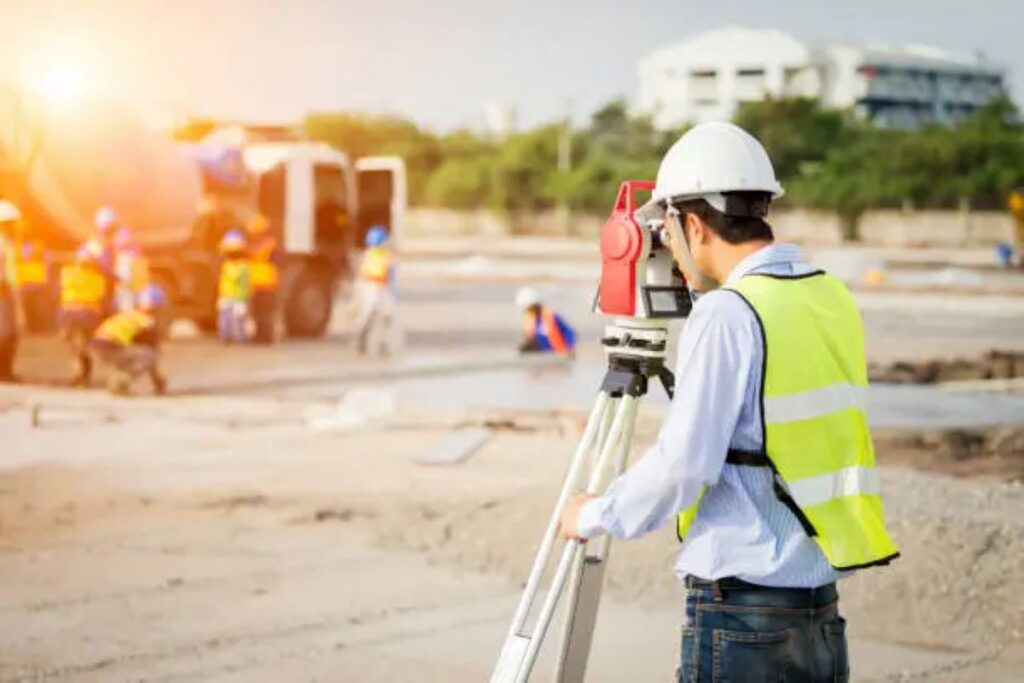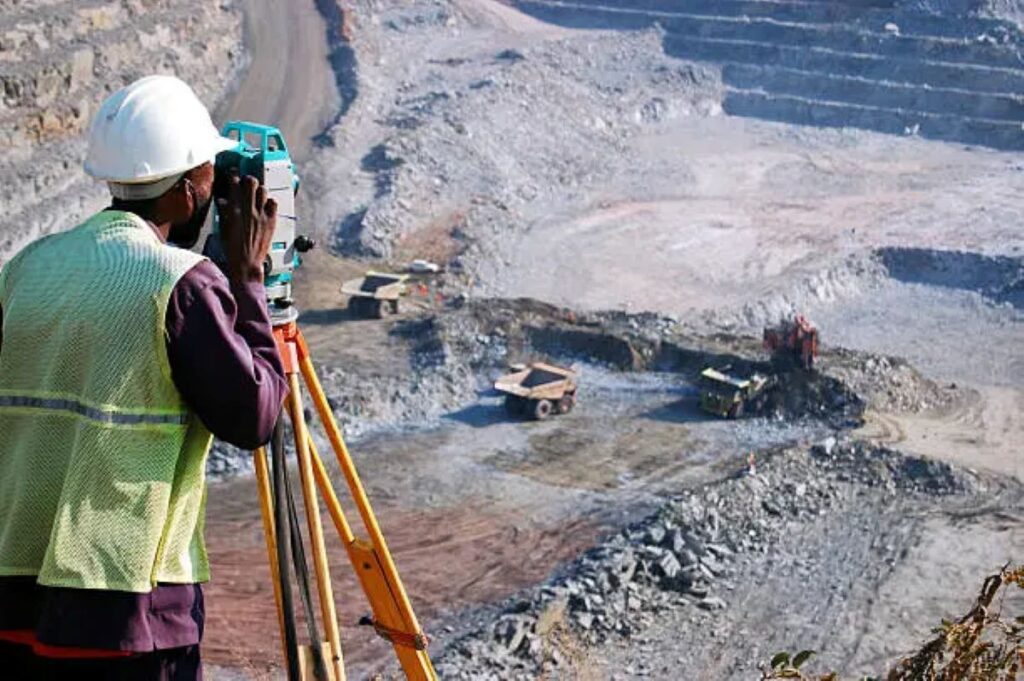In the realm of major infrastructure projects, the role of an engineering surveyor cannot be overstated. These professionals are integral to the successful planning, execution, and completion of projects ranging from roads and bridges to railways and tunnels. Their expertise ensures that projects are not only feasible but also safe and compliant with regulatory standards. This article delves into the critical functions that engineering surveyors perform and why their involvement is indispensable.
The Role of Engineering Surveyors
Engineering surveyors are responsible for measuring and mapping the land where infrastructure projects will take place. Their work lays the groundwork for the entire project, quite literally. By providing accurate data on topography, boundaries, and existing structures, they enable engineers and architects to design projects that are both efficient and effective.
Site Analysis and Data Collection
One of the primary responsibilities of an engineering surveyor is conducting thorough site analyses. This involves collecting data on the physical characteristics of the land, including its contours, elevations, and any potential obstacles. With this information, surveyors can produce detailed maps and models that aid in the design process.
Moreover, the data collected during this phase is crucial for identifying potential issues that could arise during construction. For instance, understanding soil composition can inform decisions about the types of foundations required, thereby preventing costly delays and safety hazards later on. Additionally, engineering surveyors must also consider environmental factors, such as drainage patterns and vegetation, which can significantly impact the project’s feasibility and sustainability. By integrating this multifaceted data, they contribute to the creation of designs that not only meet regulatory standards but also enhance the ecological integrity of the site.
Setting Out and Alignment
Once the design phase is complete, engineering surveyors take on the task of setting out the project. This involves marking the exact locations where construction will occur, ensuring that everything is aligned according to the plans. Precision is paramount in this stage, as even minor errors can lead to significant problems down the line.
Surveyors use advanced technology, such as GPS and laser scanning, to achieve this level of accuracy. Their meticulous attention to detail ensures that all elements of the project are positioned correctly, which is essential for maintaining structural integrity. Furthermore, engineering surveyors often collaborate closely with construction teams to provide ongoing support throughout the building process. This collaboration includes regular checks and adjustments to ensure that the project remains true to its intended design, thus safeguarding against any deviations that could compromise the overall quality and safety of the infrastructure being developed. Their role, therefore, extends beyond initial measurements, encompassing a continuous commitment to precision and excellence throughout the construction phase.
Ensuring Compliance and Safety
In addition to technical skills, engineering surveyors play a vital role in ensuring that projects comply with local regulations and safety standards. This aspect of their work is crucial, as non-compliance can lead to legal ramifications and project delays.
Regulatory Compliance
Infrastructure projects are subject to a myriad of regulations that govern everything from environmental impact to construction methods. Engineering surveyors are well-versed in these regulations and work closely with project managers to ensure that all aspects of the project meet legal requirements.
This compliance not only protects the project from potential legal issues but also safeguards the environment and the community. For instance, surveyors may conduct environmental assessments to determine how a project will affect local ecosystems, ensuring that necessary mitigation measures are in place. They often collaborate with environmental specialists to assess the impact of noise, air quality, and water resources, striving to minimise any adverse effects. This holistic approach not only fosters community trust but also enhances the sustainability of the project.
Health and Safety Considerations
Safety is a paramount concern in any construction project. Engineering surveyors contribute significantly to health and safety by identifying hazards and ensuring that safety protocols are followed. Their expertise allows them to foresee potential risks, such as unstable ground or proximity to existing structures, and implement strategies to mitigate these risks.
By prioritising safety from the outset, engineering surveyors help to create a safer working environment for all personnel involved in the project. This proactive approach not only protects workers but also minimises the likelihood of costly accidents and delays. Furthermore, engineering surveyors often play a key role in training site personnel on safety practices and emergency procedures, ensuring that everyone on site is equipped with the knowledge to respond effectively to unforeseen incidents. This commitment to safety extends beyond compliance; it fosters a culture of vigilance and responsibility, which is essential for the successful completion of any construction endeavour.

Cost-Efficiency and Project Management
In an era where budgets are often tight, the cost-efficiency provided by engineering surveyors is invaluable. Their involvement can lead to significant savings throughout the project lifecycle.
Minimising Errors and Rework
One of the most significant advantages of having an engineering surveyor on board is the reduction of errors. Accurate surveying reduces the likelihood of mistakes during construction, which can be both time-consuming and expensive to rectify. By ensuring that the project is built according to precise specifications from the start, surveyors help to avoid costly rework.
Additionally, their expertise in site analysis allows for better planning and resource allocation. By identifying potential challenges early on, engineering surveyors enable project managers to allocate resources more effectively, further enhancing cost-efficiency. For instance, they can pinpoint geological issues that may not be immediately apparent, allowing for proactive measures to be taken before construction begins. This foresight not only saves money but also helps in adhering to project timelines, which can be crucial in competitive bidding situations.
Streamlining Communication
Engineering surveyors act as a bridge between various stakeholders, including architects, engineers, and construction teams. Their ability to communicate complex data in an understandable manner fosters collaboration and ensures that everyone is on the same page. This streamlined communication is essential for maintaining project timelines and budgets.
Furthermore, by providing regular updates and insights, surveyors help to keep all parties informed about the project’s progress, which can enhance overall project management. Their role often extends beyond mere data provision; they are instrumental in facilitating discussions that can lead to innovative solutions when unexpected challenges arise. For example, if a design flaw is detected, the surveyor can quickly relay this information to the relevant parties, allowing for immediate brainstorming sessions to devise alternative strategies. This proactive approach not only mitigates risks but also fosters a culture of teamwork and problem-solving, which is vital in the fast-paced world of construction. Check out more about How engineering surveying supports civil and structural work
The Technological Edge
As technology continues to advance, engineering surveyors are leveraging innovative tools to enhance their work. From drones to 3D modelling software, these technologies are revolutionising the surveying process.
Utilising Drones for Surveying
Drones have become an invaluable tool for engineering surveyors, allowing them to capture high-resolution aerial imagery of project sites. This technology not only speeds up the data collection process but also provides a comprehensive view of the terrain.
With drones, surveyors can easily identify potential obstacles and assess site conditions from angles that would be difficult to achieve on foot. This capability enhances the accuracy of their assessments and contributes to more informed decision-making during the planning phase.
3D Modelling and Visualisation
Another technological advancement that has transformed surveying is 3D modelling. Engineering surveyors can create detailed digital representations of project sites, which can be used for visualisation and analysis. These models allow stakeholders to explore the project before construction begins, providing a clearer understanding of how the final product will look and function.
3D modelling also facilitates collaboration among team members, as everyone can visualise the project in the same way. This shared understanding helps to prevent misunderstandings and ensures that all aspects of the project are aligned with the initial vision.

Conclusion: The Indispensable Role of Engineering Surveyors
In summary, engineering surveyors are essential to the success of major infrastructure projects. Their expertise in site analysis, compliance, safety, cost-efficiency, and technology integration makes them invaluable partners in the construction process. By ensuring that projects are built accurately, safely, and within budget, engineering surveyors contribute significantly to the overall success of infrastructure development.
As infrastructure continues to evolve, the demand for skilled engineering surveyors will only increase. Their role is not just about measuring land; it is about laying the foundation for a safer, more efficient, and sustainable future. Engaging qualified engineering surveyors from the outset of a project is not merely a recommendation; it is a necessity for anyone looking to ensure the success of major infrastructure undertakings.
